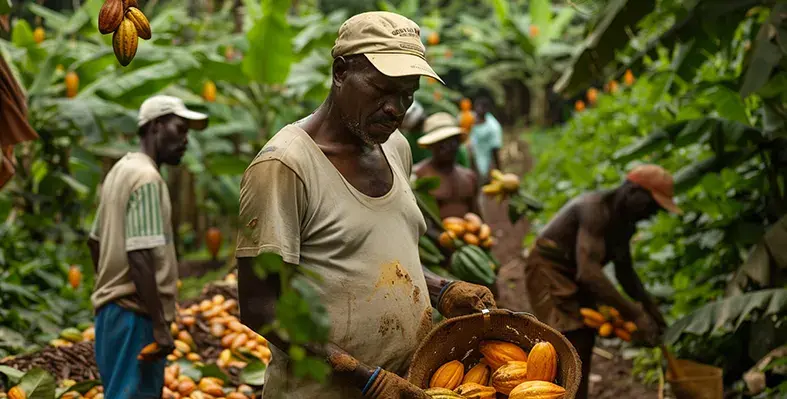The Divo project — an innovative scheme in Côte d’Ivoire to develop the world’s first grid-connected cocoa waste-to-energy plant — has attracted a further US$3mn in financing support
Blended finance investor Climate Fund Managers (CFM) and Ivorian IPP Société Des Energies Nouvelles (SODEN) have signed a development funding agreement to co-develop the 76MW project that will convert 600,000 tonnes of agricultural waste from cocoa production into renewable electricity.
Under the deal, CFM has committed US$3mn to develop the project, its first investment in Côte d’Ivoire.
The development funding will support a range of preparatory activities, including technical design, permitting, environmental and social studies, concession negotiations with the government and finalisation of a long-term power purchase agreement.
The world’s first industrial-scale, grid-connected cocoa biomass plant, the project will generate 550 GWh of renewable electricity per year from agricultural waste at a site in Divo, a major cocoa-producing region 200km north of the capital Abidjan.
Ultimately, it will serve 1.4 million people with clean electricity, creating additional income for 36,000 cocoa farmers and avoiding 300,000 tonnes of around CO₂ annually.
SODEN has already invested around US$2mn to advance the scheme to the current stage of concession negotiations with the Ivorian government, which began in August 2024 and are expected to conclude soon.
“The Divo plant offers an innovative and scalable solution to Côte d’Ivoire’s energy and climate goals,” said Yapi Ogou, CEO of SODEN.
“Each year, cocoa production leaves behind millions of tonnes of waste that goes unused and provides no economic value to farmers. By harnessing this untapped resource to generate clean, reliable energy, we’re turning a national challenge into an opportunity for sustainable growth, rural prosperity, and a more resilient energy system.”
Once operational, the plant will convert 600,000 tonnes of agricultural waste per year — primarily cocoa pod husks, bean shells and rubber trees that have reached the end of their economic life — into renewable baseload electricity for the national grid.
Côte d’Ivoire produces over 45% of the world’s cocoa.
For every tonne harvested, more than 13 tonnes of waste are left to rot at the farm gate, which releases methane, contributes to plant disease and represents a missed economic opportunity for farmers.
The Divo project has been under development since 2016 and, in 2018, received a US$996,000 grant from the US Trade and Development Agency for feasibility studies.
While Côte d’Ivoire has initiated other agricultural biomass projects using palm oil waste, the project is the first to industrially process cocoa waste at scale and supply the national grid.
“This project demonstrates the vital role of blended finance in bringing complex, first-of-its-kind infrastructure to life in frontier markets like Côte d’Ivoire,” said Darron Johnson, regional head of Africa at CFM.
“By using public capital to fund early-stage development, we can unlock private capital at scale — delivering not only clean energy and rural livelihoods, but also setting a precedent for future investment in the country.”
Read more:
AMEA Power ignites solar growth in Ivory Coast
Africa's energy future takes centre stage
Accelerating the deployment of renewables can save West Africa significant capital, says Wartsila












